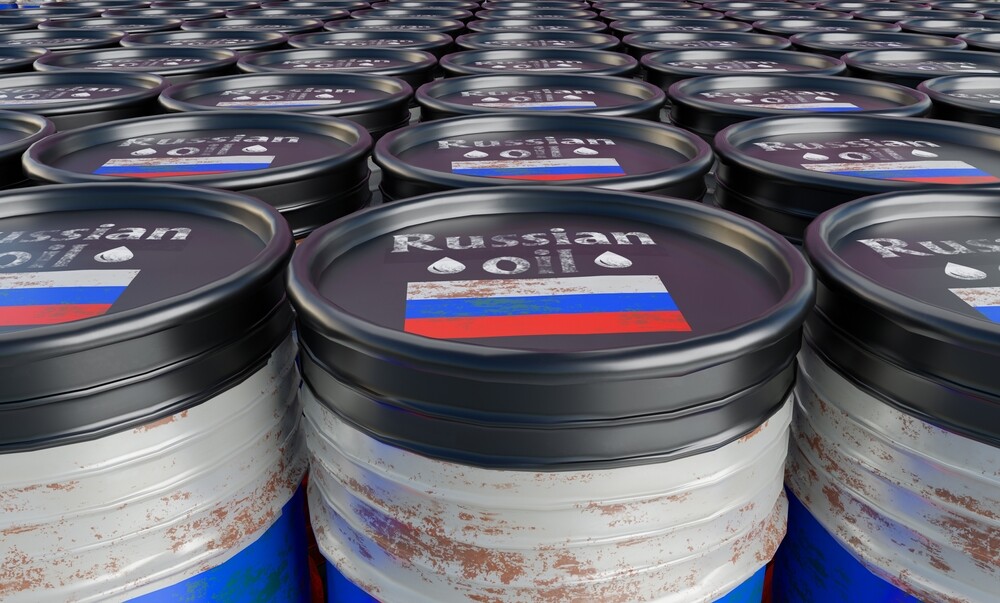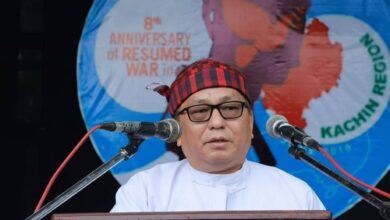
Russia is transporting oil to China through Myanmar via a pipeline owned jointly by the Myanma Oil and Gas Enterprise (MOGE) and a Chinese firm, according to the industry information site Energy Intelligence.
The pipeline runs from Made Island, part of Kyaukphyu Township, Rakhine State, to a refinery operated by Petrochina in Kunming, Yunnan Province, China.
Petrochina’s parent company, the China National Petroleum Corporation (CNPC), owns a majority share (50.9 percent) of the pipeline while MOGE, which is controlled by the Myanmar military, owns the rest. The CNPC pays a transit fee to the Myanmar regime for use of the pipeline.
Energy Intelligence confirmed that three tankers, each carrying cargoes of up to one million barrels of crude oil from the Russian ports of Novorossiysk and Murmansk, had unloaded at Made Island, the site of the Kyaukphyu port. The island houses a liquids storage facility also owned by CNPC and MOGE.
The Myanmar regime announced plans in August 2022 to begin importing Russian gasoline and fuel oil in order to ease ongoing fuel shortages and frequent power cuts, but China is the likeliest destination for the unrefined Russian oil shipped to Kyaukphyu.
The crude cargoes from Russia averaged to around 70,000 barrels per day, far too much for Myanmar’s refining capacity, according to Energy Intelligence.
“It’s impossible to know for sure whether all the Russian barrels going to Kyaukpyu [sic] end up in China, given the lack of reliable data from Myanmar. But given that the country has only one functioning refinery, with a capacity of just 6,000 [barrels per day], it seems more than likely that most of it does,” Energy Intelligence said.
Under a European Union (EU) embargo that went into effect in December of last year, Russia is no longer able to export petroleum to Europe and has sought clients elsewhere, including in Asia. The embargo, along with other commercial and financial sanctions on Russia, was imposed in the wake of Russia’s invasion of Ukraine, initiated in February 2022.
By dollar value, in 2021 Russia was the second-largest crude oil exporter globally, surpassed only by Saudi Arabia. Russia is also one of the main suppliers of arms and military equipment to the Myanmar junta.
MOGE is the Myanmar junta’s single largest source of revenue and pro-democracy organisations have long called for direct international sanctions against the military-controlled entity. While the EU has sanctioned MOGE, the United States Treasury has only sanctioned its managing director and deputy managing director as individuals.
Earlier this year, the French and American energy giants Total and Chevron withdrew from a joint project with MOGE and the Thai state-owned company PTTEP to develop Myanmar’s largest natural gas fields, citing humanitarian concerns.
Pipelines are a potential point of tactical vulnerability for the junta. Since January, the military has laid landmines and deployed troops along oil and gas pipelines running to China through Shan State and Mandalay Region, ostensibly to protect them from sabotage by anti-junta resistance fighters.
When People’s Defence Force (PDF) fighters shelled junta troops stationed at a pipeline facility in Natogyi Township, Mandalay Region, in mid-February, the resistance group’s officer claimed they were targeting the soldiers, not the pipeline. In an apparent retaliation, soldiers stormed a nearby village in the township over the next few days, intimidating and detaining the civilian residents.
According to Yee Mon, deputy defence minister for the anti-junta, publicly mandated National Unity Government (NUG), China has appealed to the NUG and the PDF fighters under its command not to target infrastructure in Myanmar funded by Chinese investments.



